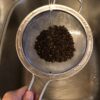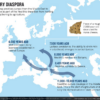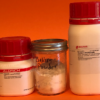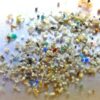When we conducted the investigation for our 2022published paper, the goal was to create a menu that was a “typical” American diet as defined by the U.S. Department of Agriculture. That “typical” diet demanded that we include cow’s milk. And that was a problem. Dairy has many opportunities for plastic contamination For dairy products, we […]






